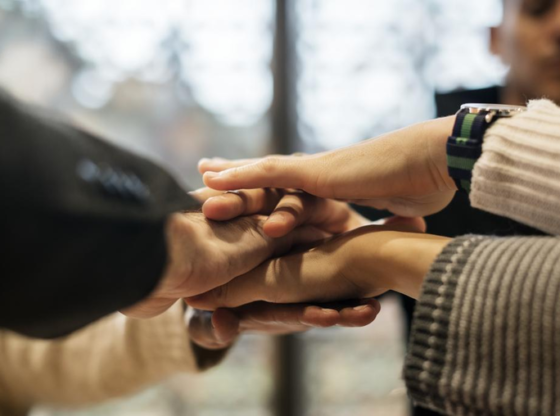Ron DeSantis, the governor of Florida, is yet again censoring his state’s education system. A little over a year ago, Florida was the state with the second most book bannings, only falling short of Texas. The infamous “Parental Rights in Education” bill, more commonly known as the “Don’t Say Gay” bill, was also signed into law by DeSantis in 2022.
The newest addition to DeSantis’s campaign of educational censorship pertains to the banning of the new AP African American Studies course. The course, developed by the College Board, is currently in a pilot phase after over a decade of development. Only 60 schools across the country are currently offering the course, with at least one of them being in Florida.
Florida’s Department of Education has already rejected the program, with DeSantis’s press secretary stating that the course “is a vehicle for a political agenda.” DeSantis and other state G.O.P. officials have frequently turned to associate the course with “critical race theory.” The academic field turned trigger word for Republicans is being exploited yet again.
Last Monday, DeSantis further defended his state’s stance on the course. He concluded that the class “significantly lacks educational value.” Some of the content of the syllabus, such as black queer studies, advocacy for reparations and even simple yet important concepts like intersectionality are what caused concern for Republicans.
The concern can be found in their distrust of critical race theory, which they believe is baked into the course. But this weird obsession with critical race theory also displays their lack of understanding. Christopher Tinson, the chair of African American Studies at the University of Saint Louis, elaborated on how the legal framework that critical race theory provides is too advanced for an AP course.
What is most likely at play within the mind of DeSantis is a desire to project his conception of American history. DeSantis was actually a history teacher himself, and to better understand his motivations, it is useful to analyze his days at the Darlington boarding school in Georgia.
In 2002, fresh out of Yale with his undergraduate degree, DeSantis decided to take up a position as a history teacher in a small, elite boarding school northwest of Atlanta. His other duties included coaching the baseball and football teams, as well as watching over dorm students.
There are a robust amount of stories–from hanging out with high school kids at parties to embarrassing a kid in one of his classes with a prank. Students that went to the school at the time described him as “a total jock” and “kind of a smug guy.”
What is most illuminating about his time at Darlington, however, is how he taught American history, in particular the Civil War. Danielle Pompey, a former student of DeSantis’s class, recalled that he taught the Civil War “in a way that sounded like an attempt to justify slavery.” She also felt that DeSantis was hostile toward her “not aggressively, but passively, because I was black.”
His smugness and high sense of self-worth became problematic at times. Mr. Arne, another student at the time, stated that DeSantis tended to operate with an “I’m better than you” complex, even though he was teaching high school kids.
All of these behaviors deviate from a healthy conception of the educational process. Education should entail a classroom that is challenging and dynamic. Opinions in the educational process can be productive, but education only works if those opinions are malleable. Our ideas of the world are supposed to transform and look different at the end of a course, not remain the same.
This is especially the case with sensitive subjects. Slavery and the numerous other forms of structural oppression that riddle American history have managed to do so because of our education system’s inability to productively approach the phenomenon. We cannot begin to create a more equitable society if we raise the next generation without an understanding of how inequities have and will continue to operate.
What makes these subjects difficult to teach is how inherently uncomfortable they are to learn. But being uncomfortable can be extremely productive, and it is up to educators to decide how to create an environment where being uncomfortable is comfortable.
This is where the G.O.P. falls short. They have no desire at all to be uncomfortable, and the uneasiness associated with learning about oppression throughout American history is something they discourage by attaching it to the idea of “radicalization.” Yet by censoring education, the G.O.P. is radicalizing the next generations into conformity and the status quo, which will only perpetuate the problems that must be fixed.
One educator in particular exemplifies what learning should be. Before Florida’s banning of the AP African American Studies course, NPR conducted an interview with Marlon Williams-Clarke, an educator teaching the course in Florida.
Clarke discussed how on the first day of class she told students that “I cannot offer you a safe space” because “what we will talk about in this course could trigger someone.” What she did offer was a “brave space,” a space where you can be “brave to indulge, brave to ask questions, brave to be curious.”
This bravery is exactly what educators need to focus on. It takes bravery to be uncomfortable, and it is bravery that makes being uncomfortable productive.
There was nothing brave about how DeSantis approached his time as a teacher at Darlington, and there was likely nothing brave about his time as a student in similar classrooms. As a result, this consistent lack of bravery is reflected in his educational policies. If Ron DeSantis represents anything, it is the destructive potential of not being brave enough to be uncomfortable.











